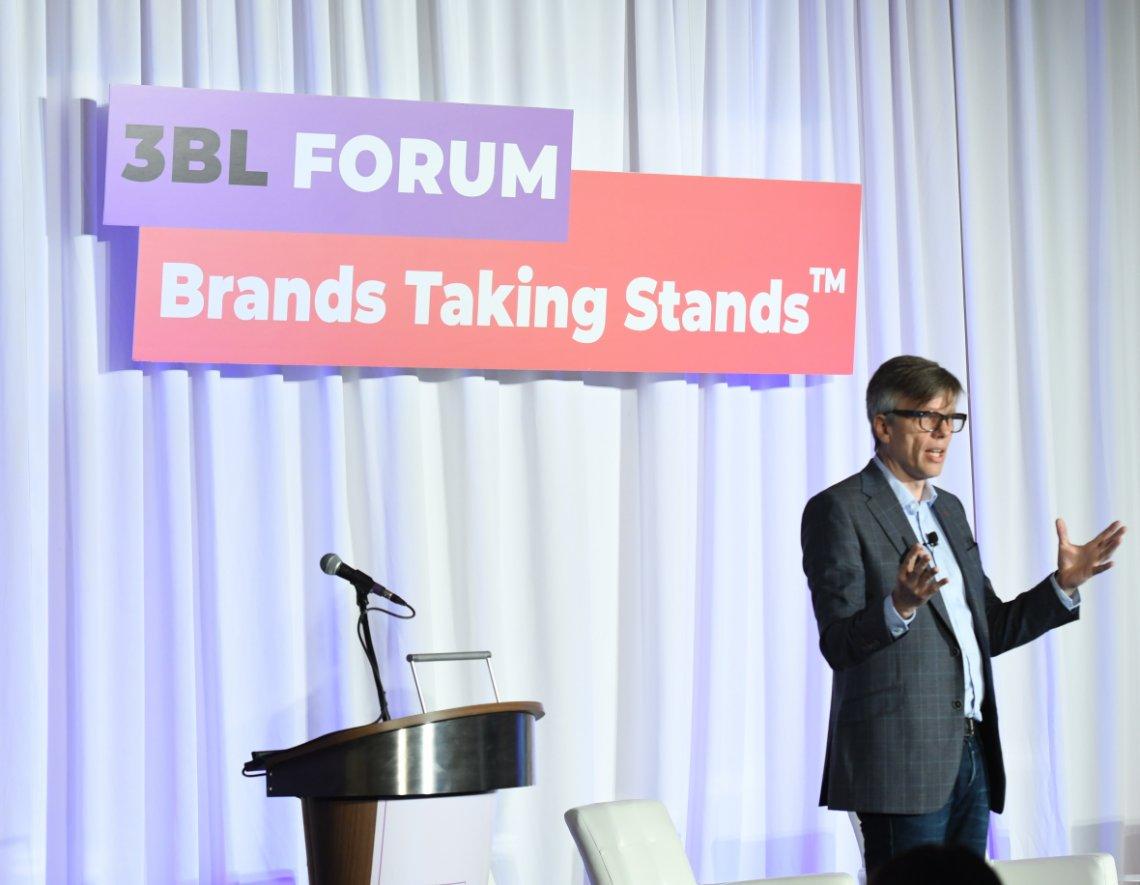Companies Now Required to Speak Out on ESG Issues: New Research
by John Howell, Editorial Director & VP of Content, 3BL Media

Brands Taking Stands™ | November 28, 2018
As a journalist, I’ve always searched out cultural trends as I saw them developing, in a constant search for “what’s next.”
“What’s next” is, of course, of major importance to business. Looking ahead to map out strategy is critical to continued success. But which trends are the right ones with which to align future plans? Which ones will matter months, even years, down the line?
What business strategists, and those of us who report on their projections, are on the lookout for is a trend that becomes much more than a cultural snapshot. We’re talking about a defining idea of the zeitgeist that carries large, long-lasting consequences for society as well as for business—in a phrase, a movement--not a moment.
In this newsletter, we’ve argued since its beginning that Brands Taking Stands is such an idea. Now, we have some numbers to back up that claim. New research finds that eight-out-of-10 corporate leaders believe companies have an obligation to speak out on environmental, social and governance (ESG) issues. That’s according to a survey on brand advocacy conducted by GlobeScan and 3BL Media.
Results from the survey were debuted last month at the 3BL Forum. The report defines the Brands Taking Stands movement succinctly: “A growing roster of Blue Chip companies are using their powerful voices to urge continued U.S. support of the Paris Climate Agreement, to strengthen gun control laws, to fight immigration laws that would negatively impact Dreamers, to champion diversity and inclusion, and to protect LGBTQ rights, among other hot-button and often political issues.”
The future workforce and brand reputation are revealed as the two principle reasons for the movement. “The tightening labor market, specifically competitive pressure for companies to recruit and retain talent, is a key driver of the Brands Taking Stands movement, followed by efforts to protect and enhance corporate reputation.”
- 82 percent of respondents said it is necessary for companies today to advocate for or take a stand on ESG issues.
- 62 percent felt that advocacy by CEOs, rather than by the company more broadly, will increase in the next 18 months.
- When asked to specify the three highest priorities for their organizations over the next 18 months, top responses were brand values, climate and environment, and diversity and inclusion.
- Motivators for companies to take stands on ESG topics were to 1) enhance their reputation, 2) show a commitment beyond profit, and to 3) meet employee expectations.
- Benefits of speaking out are 1) personnel recruitment, 2) employee retention and 3) brand equity.
“It’s early days for this movement,” said Eric Whan, a GlobeScan director. “Ben & Jerry’s, Tom’s of Maine and Patagonia and others have been doing this for a while. Now, others are finding that it is in their own interest and that of their stakeholders to take a position rather than ducking.”

